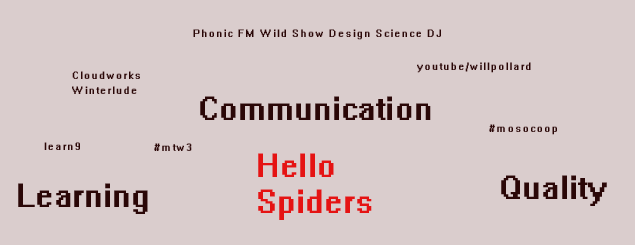Roy Greenslade and conversation about print starting round about now
Recently I have been in "hello spiders" mode, just sketching words as simple text without getting into where and when. But the Murdoch crisis is moving fast enough to take notice of dates and times. I think the perception of print has changed with the closure of a newspaper seen as just part of a move around television. Yesterday the printed Guardian Media had a front page story by Roy Greenslade -
http://www.guardian.co.uk/media/2011/jul/10/news-of-the-world-not-the-end-of-the-story Most of the content is about the classic history of the People. Quite right too, such history should be celebrated and there are still many Guardian readers who would like to hear it all again. But I think the Guardian could have also covered the background of MySpace or something like that. Can newspaper organisations cope with social media? Do the shareholders in the USA notice such things? Then I woke up in the middle of the night and turned on the World Service. This usually helps me to get back to sleep but I think it was Roy Greenslade again so I became alert enough to take some notes. Something like - for 25 years tabloid newspapers have been going out of fashion, print newspapers at both ends of the market are going out of fashion fast, people already get their news on the screen, there could be closure or sale of other newspapers. Maybe something happened between writing in print for the Guardian and speaking on radio for the BBC. But I do sometimes think the print version of the Guardian is intended for people who read print. I don't see why it can't be in print and also quite sensible. Jeff Jarvis manages a coherent article when offered the space. Apparently the Guardian will redesign the print version later this year. I hope this will be explained to the audience.Conversations about the role of print continue. Dates may not matter very much, various views can be found over the 25 years or so. Television and the internet could be the next phase. Do we need to pay for TV when we could talk to each other over web video? Answers vary depending on energy levels and the time of day.
Rupert Murdoch's Sunday tabloid lost the plot, but that shouldn't stop a red-top press revival
http://www.guardian.co.uk/media/2011/jul/10/news-of-the-world-not-the-end-of-the-story Most of the content is about the classic history of the People. Quite right too, such history should be celebrated and there are still many Guardian readers who would like to hear it all again. But I think the Guardian could have also covered the background of MySpace or something like that. Can newspaper organisations cope with social media? Do the shareholders in the USA notice such things? Then I woke up in the middle of the night and turned on the World Service. This usually helps me to get back to sleep but I think it was Roy Greenslade again so I became alert enough to take some notes. Something like - for 25 years tabloid newspapers have been going out of fashion, print newspapers at both ends of the market are going out of fashion fast, people already get their news on the screen, there could be closure or sale of other newspapers. Maybe something happened between writing in print for the Guardian and speaking on radio for the BBC. But I do sometimes think the print version of the Guardian is intended for people who read print. I don't see why it can't be in print and also quite sensible. Jeff Jarvis manages a coherent article when offered the space. Apparently the Guardian will redesign the print version later this year. I hope this will be explained to the audience.Conversations about the role of print continue. Dates may not matter very much, various views can be found over the 25 years or so. Television and the internet could be the next phase. Do we need to pay for TV when we could talk to each other over web video? Answers vary depending on energy levels and the time of day.
